Sightseeing
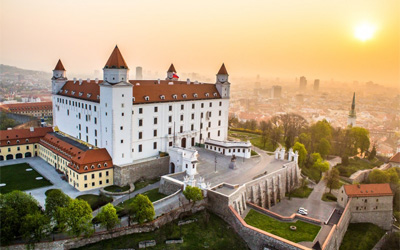
Bratislava Castle
The castle, on a hill above the old town, dominates the city of Bratislava.
It features in the first written reference to the city, which appears in the Annals of Salzburg of 907,
in association with a battle between Bavarians and Hungarians. The castle hill was populated as
early as the late Stone Age; its first known inhabitants were the Celts, who founded a fortified settlement here called ‘Oppidum’.
more info
St. Martin's Cathedral
Bratislava’s three-nave Gothic cathedral is built on the site of a previous, Romanesque church, dedicated to the Holy Saviour.
Dedicated to the Holy Saviour, from 1221. After 1291, when Bratislava was given the privileges of a town, the church was
rebuilt to become part of the city walls (its tower served as a defensive bastion). The present church was consecrated in 1452.
more info
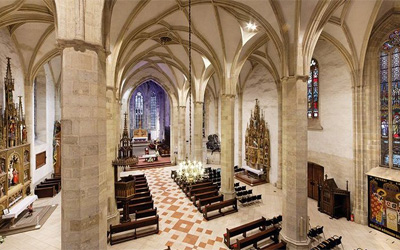
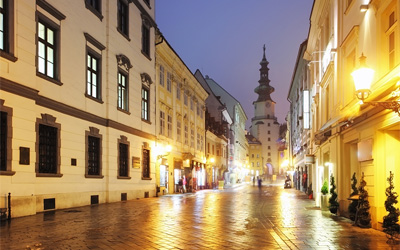
Michael's gate
The bulbous yet elegant copper roof of Michael’s Gate is one of the symbols of Bratislava.
The roof of the original gothic tower, built in the mid 14th century, was modified between 1753 and 1758 to give
it its current, baroque style. The 51 meters tall tower has seven floors, and the superb view of the old town from the upper
terrace of the tower is one of Bratislava’s top visitor experiences.
more info
Devín Castle
For the local people, the western part of Bratislava is one of the most popular venues for a trip. Just 10 km west of the city centre,
Devín Castle is set in beautiful natural scenery. Built on the top of a high crag, it towers over the small village of Devín and the confl
uence of the Danube and the Morava rivers which form the border with Austria.
more info
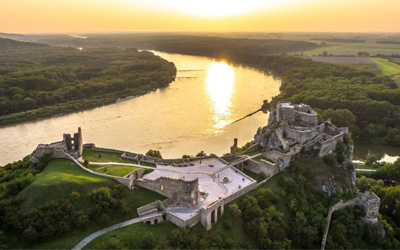

Slavín
The gigantic Slavín war memorial is visible from much of the city. On a hill overlooking the castle, it commemorates the city’s liberation by the Red Army in April 1945.
It is also a cemetery for 6,845 Soviet soldiers who died during the battles for the city and the surrounding region that took place in the final weeks of World War II.
more info
Ufo restaurant
A unique observation tower, a bar and a restaurant are located at the very top of the SNP bridge pylon.
“Floating” on the pillar of the New Bridge (Nový most), this restaurant offers a pretty unconventional experience,
from where you can enjoy a unique panoramic view of Bratislava and its surroundings from above.
more info

and many more...www.visitbratislava.com
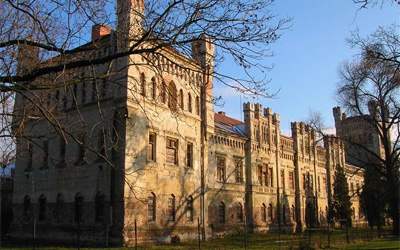
Neo-Gothic Castle
Galanta’s neo-gothic castle was built in 1633 by the brothers Daniel and Paul Esterházy during the first period of massive expansion of power and
prosperity of the family. Another member of the family, Imrich, bishop of Nitra, rebuilt the object in a baroque style in 1736.
more info